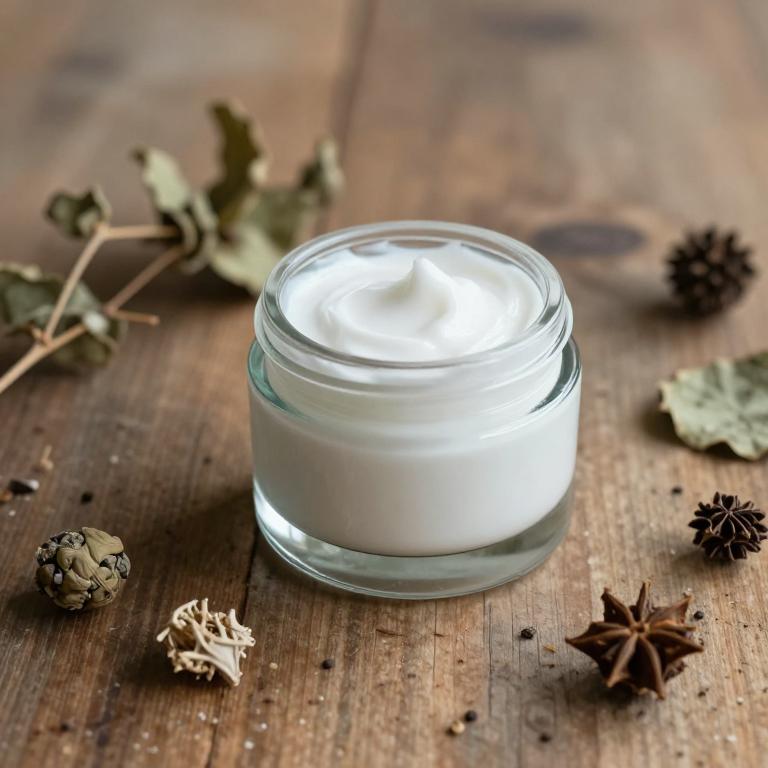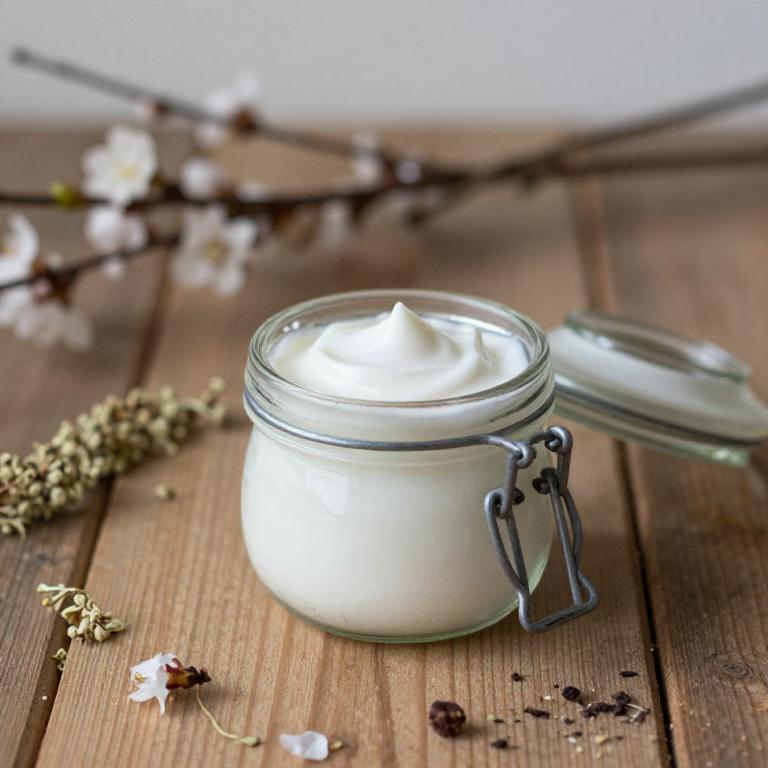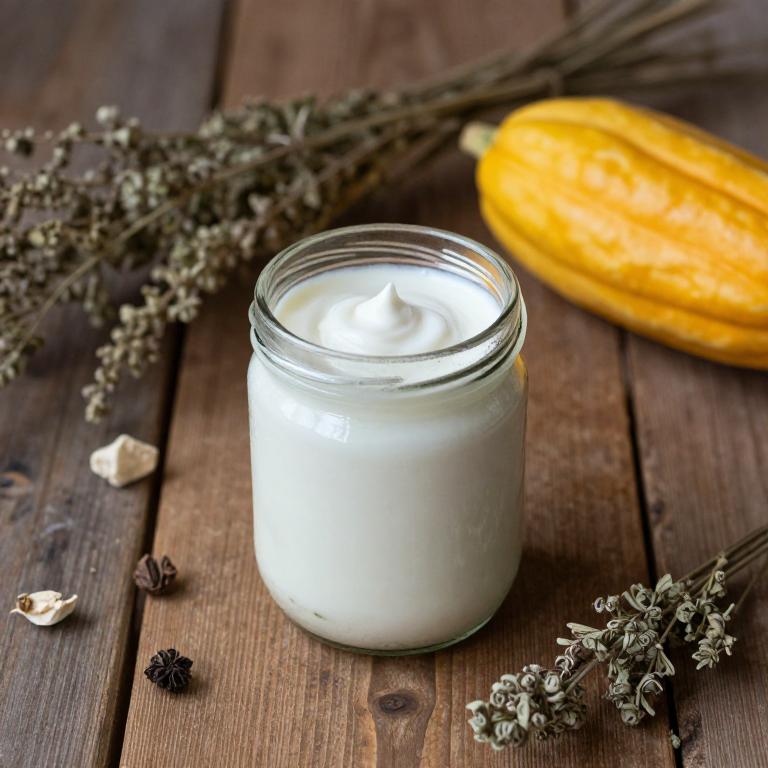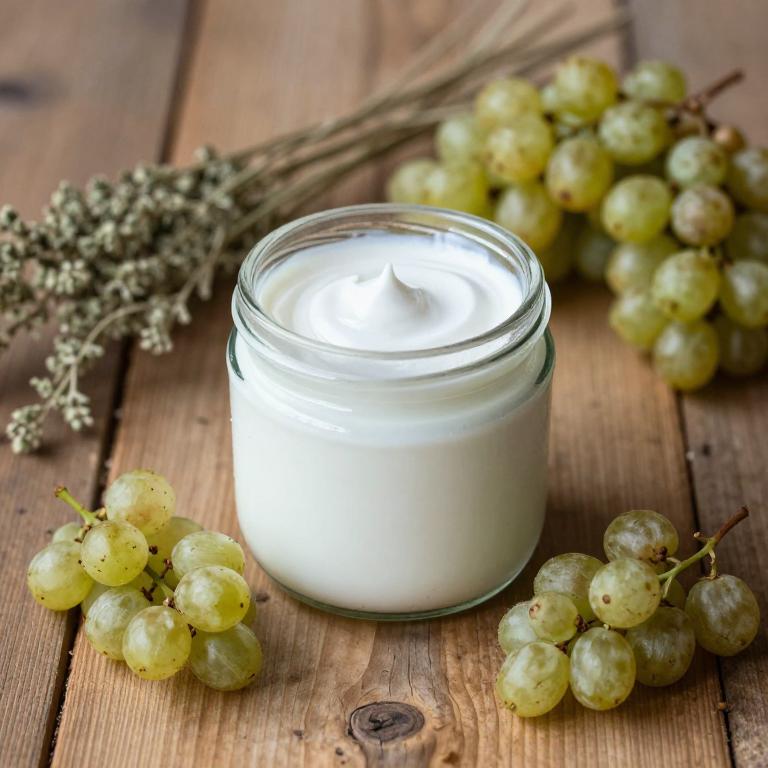10 Best Herbal Creams For Aging

Herbal creams for aging are natural skincare products that incorporate plant-based ingredients known for their rejuvenating properties.
These creams often contain herbs like aloe vera, chamomile, calendula, and green tea, which are believed to nourish and protect the skin. They are popular among individuals seeking alternative or complementary treatments to reduce the appearance of wrinkles and fine lines. Herbal creams are generally considered gentle and less likely to cause irritation compared to synthetic skincare products.
However, their effectiveness can vary, and it's important to choose products with quality ingredients and proper formulation for optimal results.
Table of Contents
- 1. Centella (Centella asiatica)
- 2. Aloe vera (Aloe barbadensis)
- 3. Thistle (Silybum marianum)
- 4. European plum (Prunus domestica)
- 5. Pumpkin (Cucurbita pepo)
- 6. Common grape (Vitis vinifera)
- 7. Dog rose (Rosa canina)
- 8. Ginger (Zingiber officinale)
- 9. Rosemary (Rosmarinus officinalis)
- 10. Echinacea (Echinacea purpurea)
1. Centella (Centella asiatica)

Centella asiatica, also known as gotu kola, is a traditional herb widely used in herbal creams for its skin-repairing and anti-aging properties.
These creams are formulated with extracts from the plant, which contain active compounds like asiatic acid and madecassol that promote collagen production and enhance skin elasticity. Centella asiatica herbal creams are particularly beneficial for reducing the appearance of wrinkles, fine lines, and scars, making them a popular choice for mature skin. They are also known to soothe inflammation and improve skin texture, offering a natural approach to aging skin care.
Due to their gentle yet effective formulation, these creams are suitable for most skin types, including sensitive skin.
2. Aloe vera (Aloe barbadensis)

Aloe barbadensis, commonly known as aloe vera, is a popular ingredient in herbal creams designed to address the signs of aging due to its soothing and moisturizing properties.
These creams often contain aloe gel, which is rich in vitamins, minerals, and antioxidants that help nourish and repair the skin. The anti-inflammatory properties of aloe vera can reduce redness and irritation, making it suitable for sensitive or aging skin. Additionally, aloe vera promotes collagen production, which can enhance skin elasticity and reduce the appearance of fine lines and wrinkles.
As a natural and gentle alternative to chemical-laden skincare products, aloe-based creams are favored by those seeking holistic approaches to anti-aging care.
3. Thistle (Silybum marianum)

Silybum marianum, commonly known as milk thistle, is a herbal remedy that has gained attention for its potential benefits in skincare, particularly for aging skin.
Herbal creams containing silybum marianum are formulated with the plant's active compound, silymarin, which is known for its antioxidant and anti-inflammatory properties. These creams are often used to help reduce the appearance of wrinkles, improve skin texture, and protect the skin from environmental stressors. The antioxidants in silybum marianum may support collagen production, contributing to a more youthful skin appearance.
While more research is needed, many users report positive effects, making these creams a popular choice in natural skincare routines for aging skin.
4. European plum (Prunus domestica)

Prunus domestica, commonly known as the common plum, has been traditionally used in herbal remedies for its potential skin benefits.
Herbal creams infused with Prunus domestica extract are believed to nourish and rejuvenate the skin, making them popular in anti-aging skincare routines. These creams often contain antioxidants and vitamins that may help reduce the appearance of fine lines and wrinkles. The anti-inflammatory properties of plum extracts can also soothe irritated skin and promote a more even skin tone.
While more research is needed, many users report improved skin elasticity and hydration when using Prunus domestica-based herbal creams.
5. Pumpkin (Cucurbita pepo)

Cucurbita pepo, commonly known as the common gourd, has been traditionally used in herbal remedies for its anti-inflammatory and skin-repairing properties.
Herbal creams made from Cucurbita pepo are believed to promote skin rejuvenation and may help reduce the appearance of wrinkles and fine lines associated with aging. These creams often contain extracts rich in antioxidants and essential fatty acids, which can support skin health and elasticity. The natural compounds in Cucurbita pepo may also help soothe irritation and improve overall skin texture.
While more scientific research is needed, many users report positive effects on their skin's appearance and condition when using these herbal formulations.
6. Common grape (Vitis vinifera)

Vitis vinifera, commonly known as the grape vine, has been increasingly incorporated into herbal creams designed to combat the signs of aging.
These creams often contain extracts from the seeds, skins, or leaves of Vitis vinifera, which are rich in antioxidants, resveratrol, and polyphenols. These natural compounds help to reduce oxidative stress, which is a major contributor to skin aging and damage. By promoting collagen production and enhancing skin elasticity, Vitis vinifera herbal creams may help to improve skin texture and reduce the appearance of wrinkles.
As a result, they are becoming a popular choice for those seeking natural, plant-based skincare solutions for aging skin.
7. Dog rose (Rosa canina)

Rosa canina, also known as rosehip, is a traditional herbal ingredient known for its rich content of essential fatty acids, vitamins, and antioxidants, making it highly beneficial for aging skin.
Rosa canina herbal creams are formulated to nourish, hydrate, and rejuvenate the skin, helping to reduce the appearance of fine lines and wrinkles. These creams are often used to improve skin elasticity and promote a more youthful, radiant complexion. The anti-inflammatory and regenerative properties of rosehip oil support skin repair and can help alleviate conditions like eczema or dryness.
As a natural and gentle option, rosa canina herbal creams are popular for their ability to support skin health during the aging process.
8. Ginger (Zingiber officinale)

Zingiber officinale, commonly known as ginger, has been traditionally used for its anti-inflammatory and antioxidant properties, making it a valuable ingredient in herbal creams for aging.
These creams often incorporate ginger extract to help reduce the appearance of wrinkles and improve skin elasticity by stimulating collagen production. The warming effect of ginger can enhance blood circulation, promoting a more youthful and radiant complexion. Additionally, ginger's natural antiseptic properties help in preventing skin infections and supporting overall skin health.
As a natural alternative to commercial anti-aging products, zingiber officinale herbal creams offer a holistic approach to skincare that addresses both the signs of aging and underlying skin concerns.
9. Rosemary (Rosmarinus officinalis)

Rosmarinus officinalis, commonly known as rosemary, is a versatile herb widely used in the formulation of herbal creams for aging skin.
These creams often incorporate rosemary essential oil or extracts, which are rich in antioxidants and anti-inflammatory compounds that help combat oxidative stress and skin damage. The aromatic properties of rosemary also promote circulation, enhancing the absorption of other active ingredients in the cream. Regular use of rosemary-based creams can help reduce the appearance of fine lines and wrinkles while improving skin firmness and elasticity.
As a natural alternative to commercial anti-aging products, rosemary herbal creams offer a safe and effective way to support skin health and rejuvenation.
10. Echinacea (Echinacea purpurea)

Echinacea purpurea, commonly known as purple coneflower, is a popular herbal remedy often used in the formulation of creams designed for aging skin.
These creams are believed to offer anti-inflammatory and antioxidant benefits, which may help reduce the appearance of wrinkles and improve skin texture. The active compounds in echinacea, such as alkamides and polysaccharides, are thought to support skin health by promoting cell regeneration and enhancing the skin’s natural defenses. While some studies suggest potential skin-soothing properties, more research is needed to confirm their efficacy for aging skin.
As a result, echinacea-based creams are often marketed as natural alternatives to conventional anti-aging products, though they should be used with caution and under professional guidance.